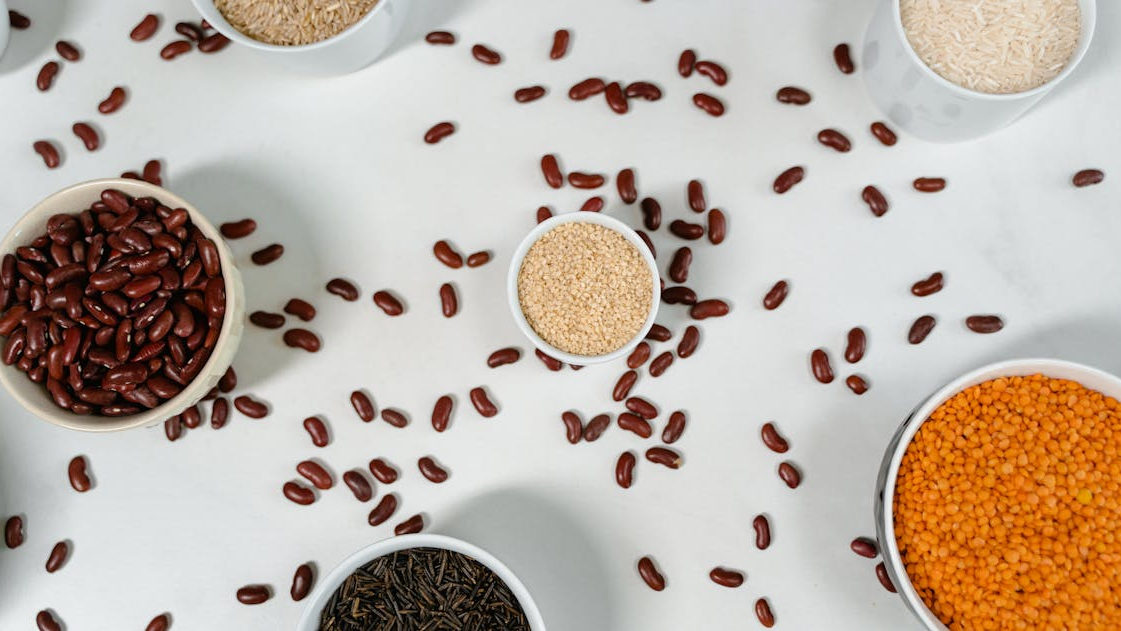
Surprising Ways Coffee Benefits Health
Every day, people drink about 2.25 billion cups of coffee. Coffee travels the world and is consumed for its taste and energy-boosting effects. But coffee benefits health in other surprising ways that we’ll explore here.
First, let’s start with the basics. Why do we drink coffee so much and how does it work?
Why do we love coffee so much?
Coffee is primarily produced in Latin America, eastern Africa, and Asia. It comes from a plant that requires lots of moisture and specific shade requirements. The coffee seeds from these plants, which we call beans, are roasted and brewed by people across the world.
Coffee’s effects are mainly attributed to caffeine. Caffeine increases alertness and focus, can boost mood, and reduce tiredness whilst it’s active. Coffee and the feeling caffeine gives us are so connected that even just smelling coffee can improve memory and stimulate awareness.
These effects are used to increase productivity, boost athletic performance, and expand awareness, among many other things. But how does caffeine do this?
How caffeine works
The effects of caffeine start within 10 minutes of consuming coffee, and peak after 45 minutes. Caffeine works because it resembles something in our bodies called adenosine.
Adenosine is part of the system that regulates our sleep/wake cycle, heart rate, and blood flow. Levels of adenosine rise through the day, as a by-product of energy, and it binds to our adenosine receptors, telling us to slow down by making us drowsy and sleepy. Whilst sleeping, adenosine levels reset, and the process repeats when we wake.
Caffeine, however, gets in first and binds to our adenosine receptors, meaning our drowsy signals aren’t getting activated. This increases alertness, allows the brain’s stimulating transmitters to work uninterrupted, and boosts mood.
But caffeine doesn’t last forever. And adenosine doesn’t go away. The caffeine eventually breaks down, lets go of the receptors, and the build-up of adenosine attaches to the receptors instead. This causes a crash, a sudden onset of drowsiness.
Besides caffeine, your typical coffee has hundreds of other active compounds than caffeine, and what’s more, they’re active in decaf too. So, let’s explore the surprising ways coffee benefits health as uncovered by MDPI researchers.
How does coffee affect the brain?
Regular coffee consumption is commonly associated with having fewer neurodegenerative disorders, but how does it affect brains generally? Researchers in Nutrients explored this question by looking at how coffee consumption affects the brain’s structure.
They did this by gathering over 2000 middle-aged and elderly participants and using MRI scans to examine their brains.
The researchers looked at cortical thickness. Cortical thickness decreases naturally with age and is associated with general intelligence. So, higher cortical thickness is a good sign of a healthy brain. Additionally, they looked at white matter, which is responsible for the brain’s connectivity.
Reduced cortical thickness and white matter integrity are related to cognitive deterioration and gait disorders, among other things. But how does coffee affect these?
Keeping the brain young
The results show that moderate coffee consumption (from 1 to 4 cups) was related to better structural integrity in the participants’ brains. Their cortical thickness was higher and white matter integrity more preserved.
The authors cite coffee’s many bioactive compounds that have powerful anti-inflammatory and antioxidant effects. These compounds help reduce the age-related degeneration of the brain that occurs naturally.
Interestingly, they also found that individuals who drank 5 or more cups did not differ from those drinking less than 1 cup. These individuals showed lower microstructural integrity than moderate coffee drinkers. This could mean that moderate coffee consumption is best for the brain-preserving effects.
Colon cancer and inflammation
Researchers in Antioxidants looked at how coffee consumption influences colon health. Specifically, they were interested in how it affects our intestinal microbiota. Gut microbiota are organisms in our guts that have a range of roles, including digesting and absorbing nutrients, producing vitamins, and supporting the immune system. See our article on Gut Microbiota for more information.
Diets high in processed and red meat and/or fat have altered microbiota. These diets increase the putrefactive compounds in the gut, which means they cause decay by producing skatole.
Low levels of skatole are linked to inflammation and reduced cell viability. And high levels are linked to significant reductions in cell viability and increased inflammation, which can lead to the development of colon cancer and inflammatory bowel diseases.
Improving colon health
So, what can coffee do? To answer this question, the authors used one of the most effective simulations of the natural digestion process and tested different kinds of coffee brews (Americano, espresso, and instant).
The authors found that all three types of coffee had anti-inflammatory properties, reversing the inflammatory effects of the skatole. Espresso had the biggest effect, due to it having higher levels of polyphenols, which have antioxidant effects. Oxidants damage our cells and can cause inflammation and disease in large amounts.
In short, the authors conclude coffee has anti-inflammatory effects that lessen the effects of skatole in the gut. By testing it in the presence of high levels of skatole, the authors show coffee consumption may generally improve health conditions by reducing the risk of colon inflammation for all drinkers. Given colon cancer cases are rising in young people, such information is very valuable.
Coffee benefits health
The two highlighted studies show how coffee benefits health in both mind and body in surprising ways. Firstly, coffee helps maintain the structure of the brain in response to age-related degeneration, reducing the risk of dementia. And secondly, coffee helps reduce the negative effects of skatole in the colon, reducing cancer risk.
Common to both these benefits is coffee’s anti-inflammatory properties. Packed full of healthy compounds, moderate coffee consumption helps to reduce inflammation, which can lead to damage to cells, tissues, and organs if untreated.
So, make sure to enjoy your next cup of coffee, knowing that alongside the energy boost you receive, your health is being supported too. As long as you don’t drink too much.
If you’d like to learn more about how food can benefit your health, we have plenty of content available. Why not start with Innate Immunity and Diet, which looks at how your diet influences your immune system.











Thanks for this post. I really enjoy your point of view on this topic.
Hi,
Thanks for taking the time to read our article and leaving this comment. We do not accept links in comments, so we removed yours; hope this is okay.
All the best.
Great post. Looking forward to reading more. Thanks for taking the time to write this.
Thanks for your comment. We do not accept links in the comments, so we removed them; I hope this is okay.
All the best.